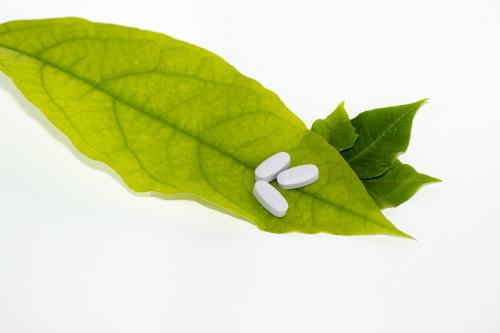What to Look for When Shopping for Herbal Supplements

The herbal supplement industry exploded in the 1970s and has only grown in popularity since. Some of the interest people have in herbal supplements is health-driven, part is distrust of mainstream medicine, and part is due to a desire for simpler times.
How do you know, though, the supplement you are taking will do you any good? Undoubtedly, performing your research is critical, but so is ensuring what you buy meets certain criteria.
When you buy kratom capsules, for example, you want to make sure what you buy is pure, effective, and the best product on the market.
Here are a few “musts” you should insist on, no matter what supplement you purchase.
Third-Party Tested (When Possible)
Many dietary supplements do not get tested by an independent, third-party organization. While a government review might not be possible, you should look for affirmation from the manufacturer that the product has been tested. The best way for a manufacturer to prove their product is safe is through third-party testing.
Numerous third-party testing organizations put supplements through rigorous testing for efficacy and safety. These groups verify that the ingredients listed are in the supplement and no hidden substances are present. If you are unsure about the organization that tested the supplement, research the group before purchasing the herbal supplement.
Allergy Safe
Supplement makers are required to list everything that goes into their supplements. That includes if the supplements you want to buy were made on machines that might have nut residue or contain wheat, soy, dairy, shellfish, fish, eggs, etc. If you have food allergies, you must verify that your supplements do not contain trace amounts of those substances.
Being cautious about the ingredients in a supplement is particularly important if you have ever had any severe reactions. In addition, you need to research whether your supplements might trigger or enhance allergies. Chamomile tea, for example, can trigger an allergic reaction if you have seasonal allergies.
Few or No Additives
Every supplement maker wants to maximize the shelf-life of their product. To achieve that objective, many have opted to use additives and preservatives. While many additives are safe, some have been shown to have adverse health effects on specific populations.
The American Academy of Pediatrics, for instance, has warned that some chemicals in foods can affect the health and growth of children. Other organizations have warned about certain dyes, fillers, and preservatives. If you see an ingredient in your supplements that you do not recognize, it is best to research it and make sure it is safe before purchasing it.
Non-GMO
The debate over GMOs is one of the hottest, most contested discussions imaginable. GMO products, however, are everywhere, and if you are on the side of the debate that feels they pose a health risk, you will want to verify that your supplements are free of them. GMOs have been suggested to cause allergies and even alter the properties of certain substances.
An easy way to avoid worrying about GMO-altered supplements is to not deal with them. Insisting on non-GMO supplements is one way of ensuring you are buying a safe product. The peace of mind non-GMO supplements bring might be worth paying a bit more.
Image: https://pixabay.com/photos/pharmacy-pharmacist-chemical-2055130/
Organic
Whether your supplements are organic is also a hot topic. Like GMOs, you rarely find someone that takes supplements that does not have an opinion about whether organically raised ingredients are better for you. Being safe means insisting on organically-grown ingredients and avoiding anything traditionally farmed or artificial.
Insisting on organically grown ingredients also addresses the GMO issue in the United States.
The US Department of Agriculture mandates that organic products contain no GMO substances. So, if you see the label “organic,” you know that your food or supplements are free of GMO ingredients.
Little or No Sweeteners
Most people do not think of supplements as having sweeteners. Many, however, do because without sweeteners, the supplements taste bad or have an aftertaste. To avoid a supplement having sugar, many companies resort to artificial sweeteners.
Ensure that the ingredients in your supplements are natural and contain minimal sugar or no sugar at all. Also, verify that your supplements contain no artificial sweeteners.
Staying Healthy Requires Vigilance
Insisting on the criteria above will ensure that you get the best quality product on the market, whether you are buying Kratom or trying out a supplement to help lose weight or gain some other health benefit.
Where herbal supplements are concerned, ensuring that your products are organic, tested, and only contain known natural additives, is a good place to start.
Post Your Ad Here
Comments